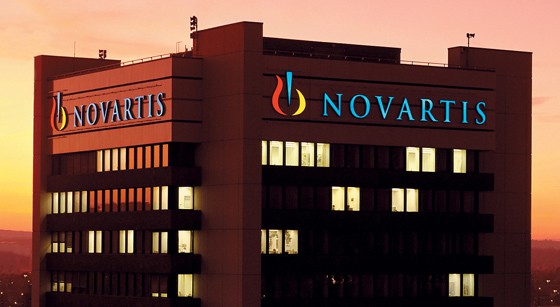
Novartis is planning to boost its cancer immunotherapy pipeline with the creation of a dedicated R&D unit and a $750m collaboration with US biotech Aduro.
The collaboration with California-based Aduro is focused on the development of cancer immunotherapies based on the STING (Stimulator of Interferon Genes) receptor that – when activated – is through to initiate a range of tumour-specific immune responses.
Novartis is paying $200m upfront for rights to the programme along with an equity investment of $25m. Assuming the alliance proceeds according to plan, Aduro could also get additional payments of $500m and another $25m equity investment.
Meanwhile, Novartis has decided to put all of its immuno-oncology assets into one basket, with the creation of a research team that will be headed by new hire Glenn Dranoff, a leading immunologist formerly working at the Dana Farber Cancer Institute in the US.
Novartis has been active in the development of cancer immunotherapies for several years and has already advanced chimeric antigen receptor T-cell (CART) drug CTL109 into phase II trials and has two PD1-targeting checkpoint inhibitors – LAG3 and TIM3 – scheduled to start clinical trials this year.
The company is lagging behind its rivals in the latter category however – with Bristol-Myers Squibb and Merck & Co already having PD1-targeting drugs on the market and additional candidates from AstraZeneca, Merck KGaA/Pfizer and Roche also in mid- to late-stage clinical development.
“Immunotherapy is one of the exciting frontiers in oncology today,” said Mark Fishman, president of the Novartis Institutes for BioMedical Research.
While current approaches with checkpoint inhibitors and T-cell modulation are potent – they only work in select tumour types, he added. On the other hand, Aduro’s STING agonists “have the potential to fully activate the immune system to attack a broader range of tumours,” said Fishman.
Aduro’s novel small molecule cyclic dinucleotides (CDN’s) have been shown to generate an immune response in preclinical models that specifically attacks tumour cells.
Under the terms of the new agreement, Aduro will lead commercialisation activities and book sales in the US, with Novartis taking the lead elsewhere. The two companies will share in profits in the US, Japan and major European countries.
The US company also has a $850m collaboration in place with Johnson & Johnson (J&J) for the development of immunotherapies to treat prostate and lung cancer.




